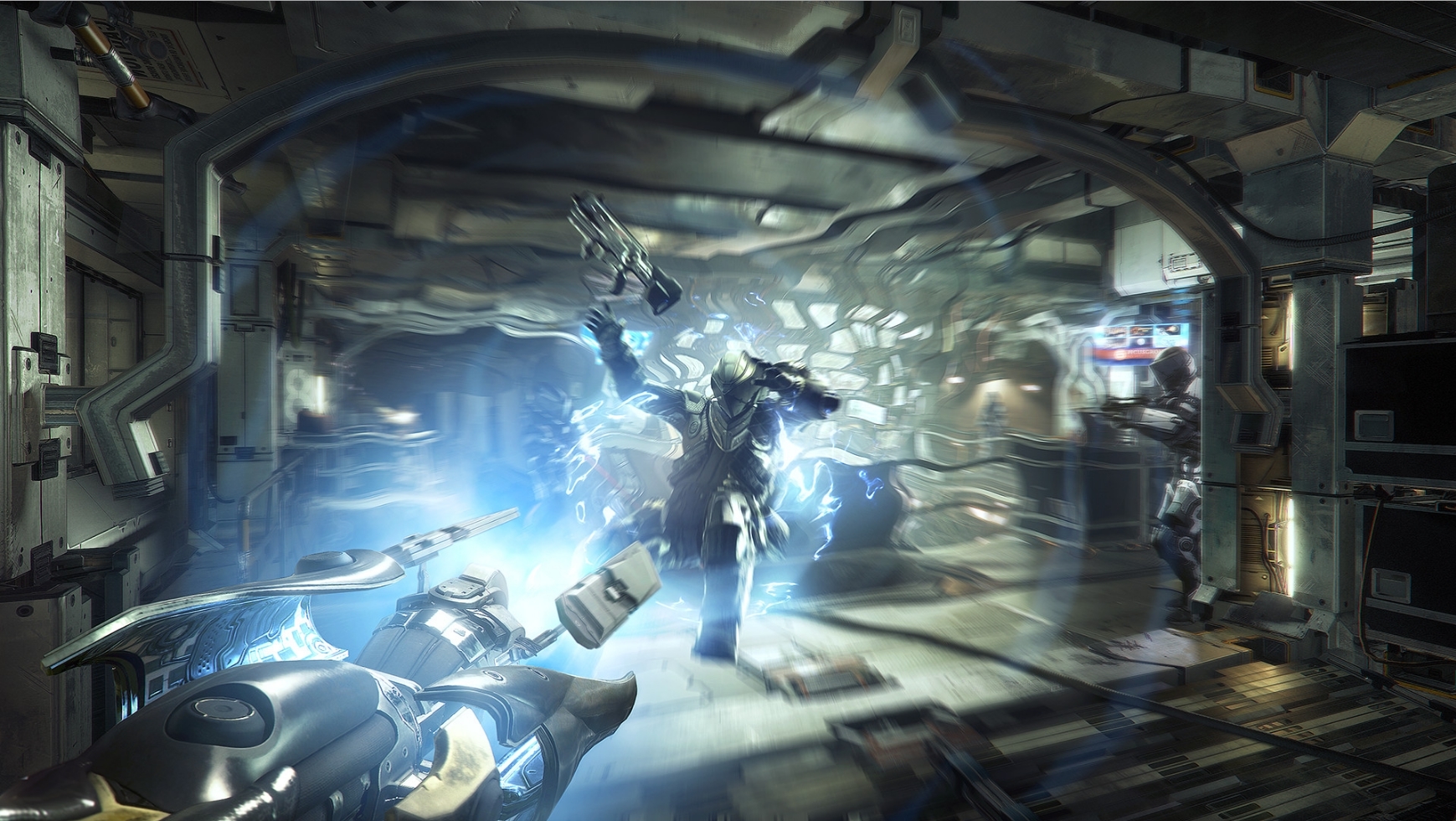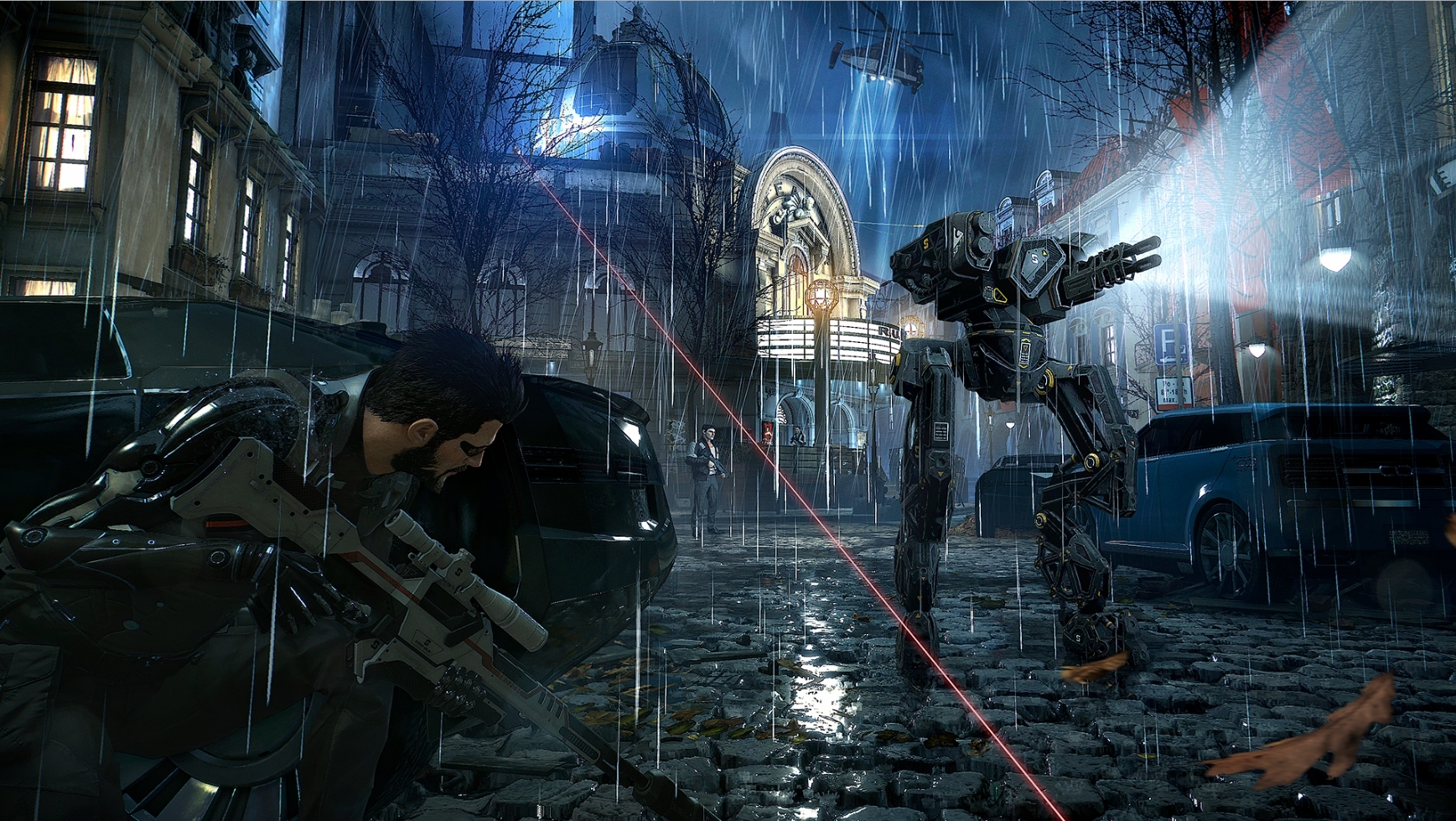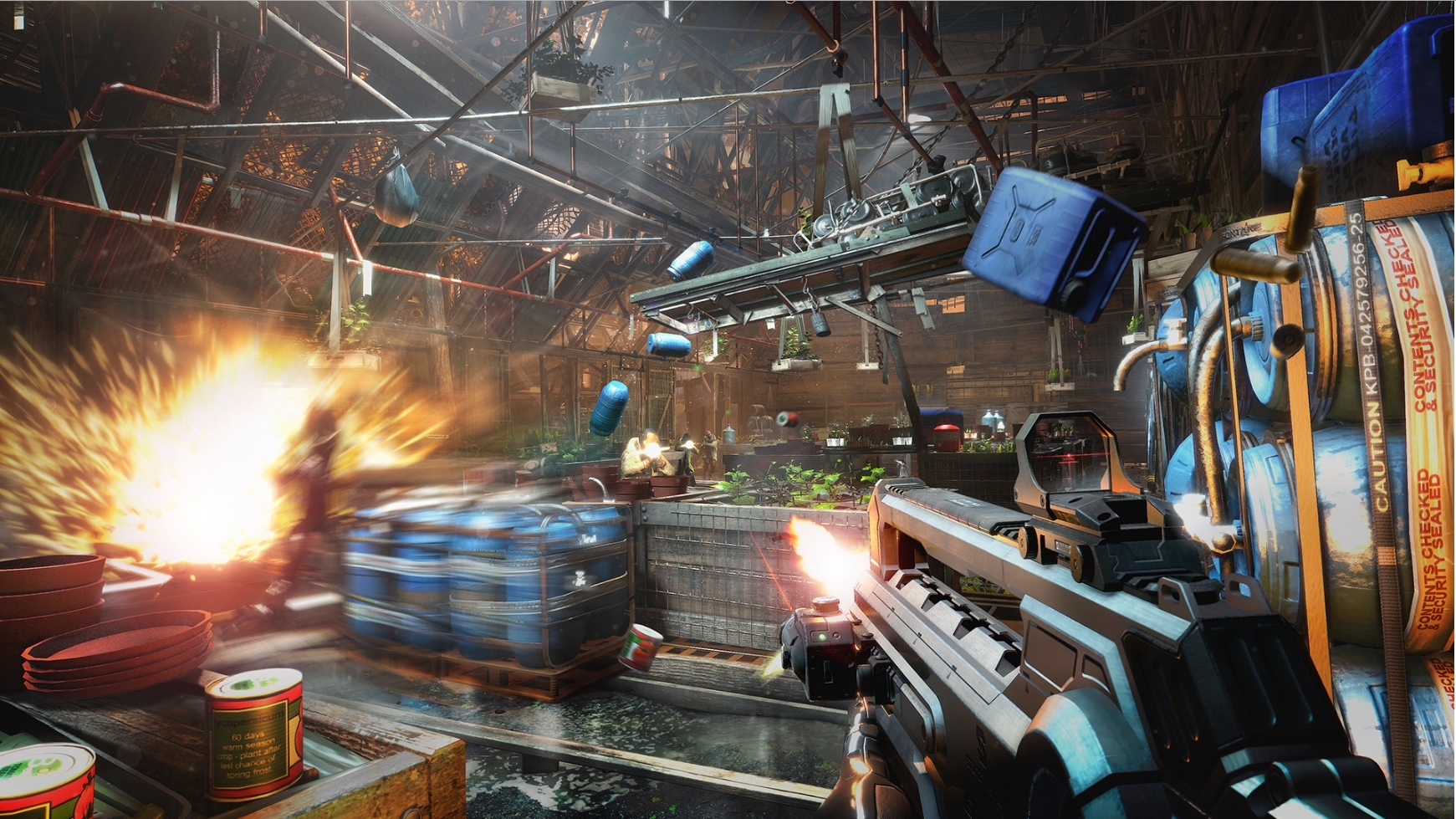Deus Ex is a fascinating series\universe in my eyes. Having only played Human Revolution, my knowledge is sparse, but I’ve experienced enough to appreciate what the franchise has created. However, I was quite a bit younger when I played that game back in 2011, so its various complexities and slow pace were a bit daunting to me. In retrospect, I can appreciate it much more, and the same goes for Deus Ex: Mankind Divided. If you don’t know, Deus Ex is a sci-fi RPG\first person shooter franchise. The RPG elements are lite, and therefore not overwhelming, and the FPS portion of things is on par with anything else you’d find today.
The Deus Ex series takes place in the near future (the 2020s-2050s), where technology has surged in numerous ways. The biggest technological advancement is that of mechanical augmentation. Humans are able to replace or enhance body parts with various robotic hardware, allowing people to perform previously impossible tasks, both physically and mentally. Normal humans and augmented humans lived in peace up until the end of Human Revolution, when a secret group known as The Illuminati (Yeah, you read that correctly) activated a signal that sent augmented people across the globe into psychotic frenzies.
The result of this is the segregated, corrupt, and paranoid world that serves as the backdrop for your adventures. You control Adam Jensen, a former Detroit cop who had to have much of his body augmented to save his own life. Jensen is now a part of a counter-terrorism group known as Task Force 29, and while on the surface his goal is simply to hunt down terrorists, his true motive is finding those responsible for creating such a divided and hate-filled world.

I can already say that within a few minutes of playing Mankind Divided that the plot is much more interesting than Human Revolution‘s. The concept of this broken and heavily segregated world brings forth a dark, oppressive, and downright sad tone. I love that. However, since this game is so heavily story based, I don’t wish to give away too many details (by my own will, and at the humble request of Square Enix).
I can say that the plot doesn’t hesitate to get the ball rolling. Things get chaotic fast, and I appreciate that in a game. The city of Prague (which is where you’ll spend a good amount of time after the game’s opening mission) is a dismal place. Watching police officers abuse and take advantage of augmented people (or “Clanks” as they’re usually called) isn’t fun, and it drove me as the player to want to fix what I could and help make the world a better place.
In addition to the main story, Mankind Divided offers plenty of detailed side missions to explore, as well. And I’m not talking about “Go here grab this item and come back to me for a reward,” side missions–I’m talking detailed, fleshed out little stories that you get to explore. It’s a refreshing change of pace from the usual fetch quests that plague most RPGs.
The gameplay itself is a hybrid of first person shooting\stealth, and exploration. Mostly the latter two. The Deus Ex series is very much one that revolves around player choices. Choices you make in dialogue can affect the story and events, but more prominently, you can choose to play through the game with lethal or non-lethal force. Unfortunately, going in guns blazing is often an unwise course of action. Because of this, stealth and non-lethal force is something I feel like I had to work with for a good portion of the situations I found myself in.

This is where some players may get lost on the game. Stealth can be difficult and often tedious. Enemies are not unrealistically alert to their surroundings (Cough Far Cry 2 Cough), but their patrol patterns are usually difficult to get around. This results in some segments taking ages to figure out. I probably spent twenty minutes scoping out one tiny area, simply looking for an opening to knock out some guards and proceed. While it was a rewarding experience, it did certainly try my patience.
The other big factor in Deus Ex: Mankind Divided is exploration. Often times the game will tell you where to go, but once you’re there it’s up to you to figure out what to do. This can either be a good thing or a bad thing. I do love exploring, but being in situations where the game gives little information on how to proceed other than a vague indication can be obnoxious, and I found myself stumped frequently. However, I do understand that some people may enjoy this approach–I’m 50/50 on it. This game really expects you to think outside of the box and search every nook and cranny for clues, and that may not appeal to everyone.
The game also gives you plenty of choice on how to proceed to objectives. Often times your goals are behind locked doors that you must hack or find codes for. If that doesn’t work, more often than naught there’s a more simple route hidden somewhere. It was definitely rewarding to get locked out of a door’s terminal, only to find a ladder that led up to an open window that I could sneak through.
The RPG elements of Mankind Divided come in the form of your augments. Leveling up grants you something called a Praxis Kit, which lets you essentially buy upgrades to your various robotic powers. These abilities include seeing through walls, becoming invisible, hacking terminals from a distance, and so on. Other than this and the heavy amounts of dialogue, there isn’t much to Mankind Divided‘s RPG side, and I think that’s alright. It adds just enough depth to make things interesting, but not so much that it makes the game inaccessible to more laid back players.

That’s not to say that Mankind Divided is a casual game, though. The pacing is slow, there’s a ton of dialogue, it has a decently steep difficulty curve, and it doesn’t really hold your hand much at all. I find it to be an enjoyable but flawed experience. I can’t really recommend it if you’re not willing to put effort into it. It’s certainly an acquired taste. A taste I’ve yet to fully acquire, but I’m coming around to it.
Finally, as someone who played the PC version, I’ll briefly let you fellow PC gamers know how Mankind Divided performs. First of all, I can say that you do NOT want to turn Multisample Anti-Aliasing (MSAA) on at all. Same goes for setting Volumetric lighting to Ultra. These both tank performance tremendously. Other than that, the game performs decently well on my GTX 970 on High settings. It’s clear, though, that this game isn’t optimized too well right now. If that concerns you, I would wait a while before buying so these issues can (hopefully) be addressed.
In closing, Deus Ex: Mankind Divided is a game that suffers from the same issue I’d say Human Revolution suffers from: It’s not totally accessible. It’s not a fast paced sci-fi shooter. In fact, I would class it more as a vastly interactive detective story of sorts. The visuals and mechanics have definitely seen improvement, and the story is much more memorable and interesting than the previous title’s. Unfortunately, if you’re not into stealthing around (because it really is the only viable option most of the time) and exploring a lot, you’d do better to wait for Battlfield 1 and Titanfall 2. Deus Ex: Mankind Divided is what I would call a bit more “intelligent” of a video game. It requires patience and the ability to think things through before acting. That won’t be everyone’s cup of tea.
A PC code for Deus Ex: Mankind Divided was provided by Square Enix for the purpose of this review



























































